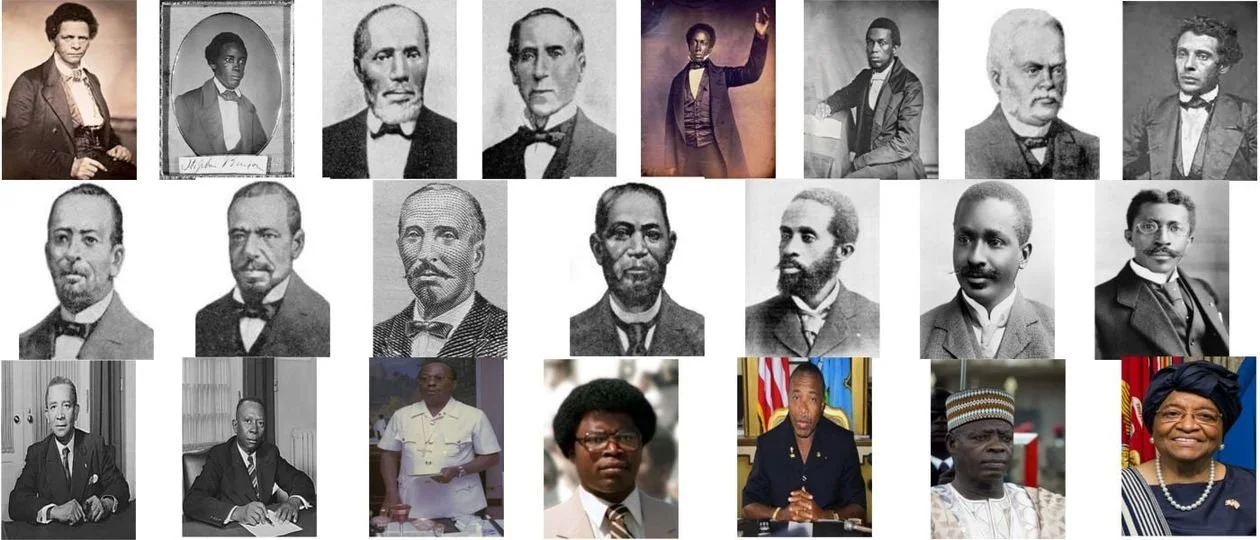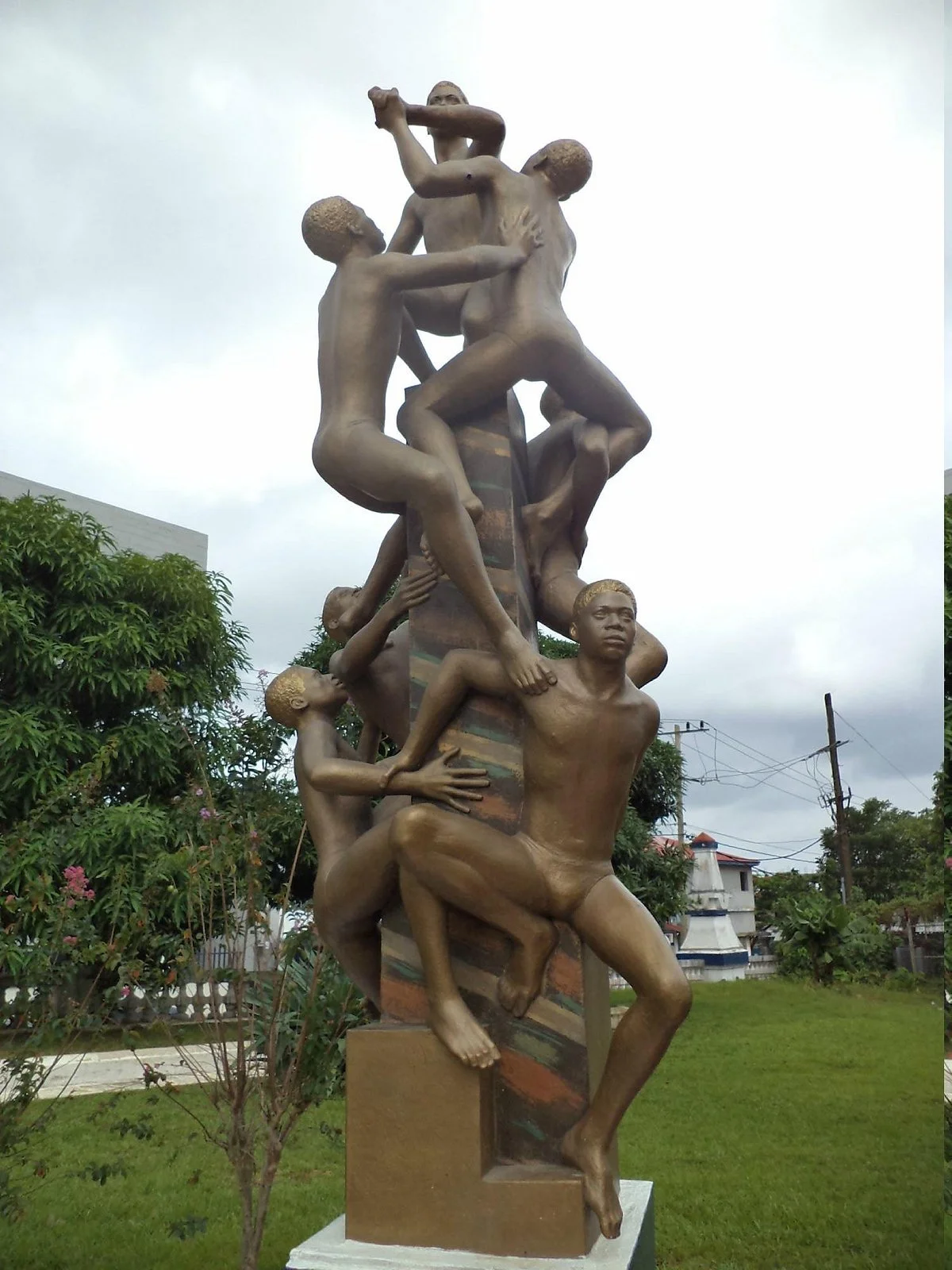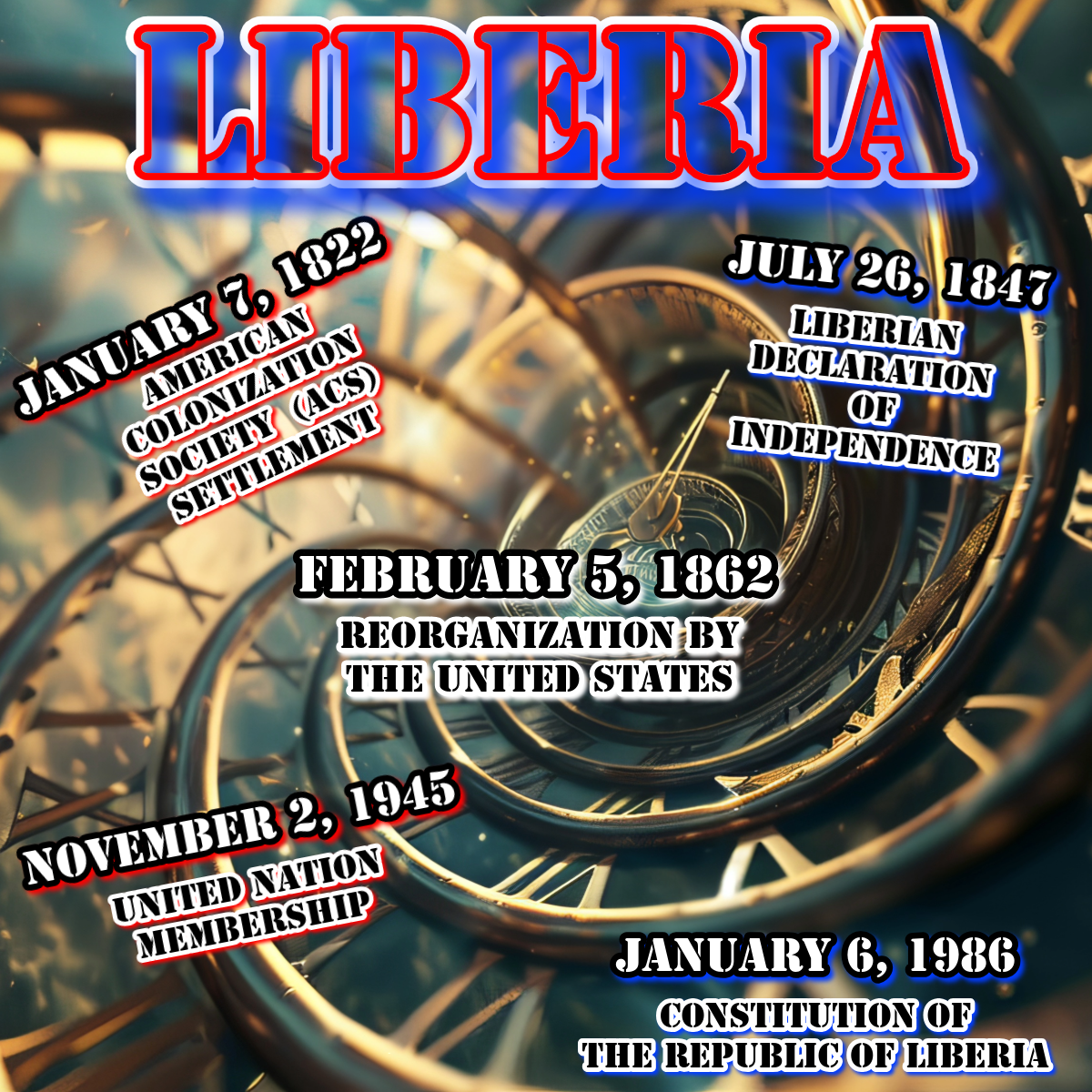
A Step into Liberia’s History
“Look to Africa, when a black king shall be crowned, for the day of deliverance is at hand”
Founded by freed American slaves, and considered to be the home of the African diaspora. Liberia is known as the promised land for the African diaspora lost and spread across the globe. In 1847, Liberia declared its independence, making it Africa's oldest republic. The country is known as the forgotten stepchild of America, With broken promises going all the way back to Abraham Lincoln.
The Promised Land

Our Past & Present
-
The nation of Liberia was founded in 1822 as a settlement for freed African-American slaves. The American Colonization Society (ACS), an organization formed in 1816 by a group of white Americans—including politicians, clergy, and slaveholders—spearheaded the establishment of Liberia. They believed that freed slaves would have better opportunities for freedom and prosperity in Africa than in the United States.
The first group of settlers arrived on the West African coast in 1822, and the settlement was named Monrovia after James Monroe, the U.S. President at the time and a supporter of the colonization project. Over the following decades, thousands of freed and free-born African Americans emigrated to Liberia under the auspices of the ACS.
Liberia declared its independence on July 26, 1847, making it Africa’s first republic. The new nation’s constitution was modeled after that of the United States, and Joseph Jenkins Roberts, a prominent settler, became its first president. The indigenous African populations had limited rights and faced significant marginalization by the Americo-Liberians, the descendants of the original settlers.
Despite internal conflicts and tensions, Liberia maintained its independence through the colonial era when most of Africa was divided among European powers. The nation’s unique founding story and its early independence make it a significant chapter in African history.
-
Liberia in the 1800s and 1900s experienced significant developments and challenges, evolving from a colony for freed American slaves into a republic navigating internal and external pressures.
1800s:
Founding and Early Settlement: In 1822, the American Colonization Society (ACS) established Liberia as a settlement for freed African-American slaves. The capital, Monrovia, was named after U.S. President James Monroe.
Independence: Liberia declared its independence on July 26, 1847, becoming Africa's first republic. Joseph Jenkins Roberts, an Americo-Liberian, became the first president.
Americo-Liberian Dominance: The settlers, known as Americo-Liberians, dominated politics and society, marginalizing the indigenous African populations.
Economic Struggles: The economy was primarily based on agriculture, with exports of coffee and cocoa. Liberia faced economic challenges, including conflicts with indigenous groups and European colonial pressures.
1900s:
Economic Development and Struggles: In the early 20th century, Liberia signed a significant concession with the Firestone Tire and Rubber Company in 1926, leading to economic growth through rubber production. However, the country also faced debt issues and economic dependency on the U.S.
Political Stability and Upheaval: The True Whig Party, representing the Americo-Liberian elite, maintained a one-party state for much of the century. Political stability was marked by President William Tubman's long rule from 1944 to 1971, which saw modernization efforts and infrastructure development.
Coup and Civil War: In 1980, a coup led by Master Sergeant Samuel Doe overthrew President William Tolbert, ending Americo-Liberian dominance. Doe's regime was marked by ethnic favoritism and repression. In 1989, Charles Taylor's insurgency ignited the First Liberian Civil War, leading to widespread devastation and Doe's execution in 1990.
Peace and Further Conflict: The war ended in 1997 with Taylor's election as president, but his rule led to the Second Liberian Civil War in 1999. The conflict ended in 2003 with Taylor's exile and the establishment of a transitional government.
By the early 21st century, Liberia began to stabilize with international support, leading to democratic elections and the presidency of Ellen Johnson Sirleaf in 2006.
-
The Liberian Civil War consisted of two brutal conflicts from 1989 to 1997 and from 1999 to 2003. The first war began when Charles Taylor, leading the National Patriotic Front of Liberia (NPFL), launched an uprising against President Samuel Doe. The conflict devolved into widespread violence, with various factions fighting for control. Doe was captured and killed in 1990, leading to further chaos and atrocities. The war ended in 1997 with Taylor's election as president.
The second civil war erupted in 1999, sparked by opposition groups, including the Liberians United for Reconciliation and Democracy (LURD), fighting against Taylor’s government. This war was marked by severe human rights abuses and a humanitarian crisis. The conflict ended in 2003 when Taylor resigned under international pressure and went into exile.
Both wars left Liberia devastated, with an estimated 250,000 people killed and millions displaced. The wars also caused significant economic and infrastructural damage. Peace was gradually restored with the help of international interventions, leading to democratic elections and the eventual presidency of Ellen Johnson Sirleaf in 2006.
-
Ellen Johnson Sirleaf, the first female president in Africa, was born on October 29, 1938, in Monrovia, Liberia. Her early education took place in Liberia, and she later pursued higher education in the United States, earning an accounting degree from Madison Business College in Wisconsin and a Master of Public Administration from Harvard University.
Sirleaf's career began in the government of Liberia, where she served as Assistant Minister of Finance under President William Tolbert. However, political turmoil led to her exile, during which she worked for various international financial institutions, including the World Bank and Citibank.
In 2005, Ellen Johnson Sirleaf made history by being elected President of Liberia, making her the first woman to lead an African nation. Her presidency, which lasted from 2006 to 2018, was marked by efforts to restore peace and rebuild the country following years of civil war. She implemented economic reforms, promoted women's rights, and worked towards national reconciliation.
Sirleaf's leadership earned her international recognition, culminating in the Nobel Peace Prize in 2011, which she shared with Leymah Gbowee and Tawakkol Karman for their work in promoting women's safety and participation in peace-building.
Her legacy is one of resilience and trailblazing leadership, inspiring women across Africa and the world.
What People have been say about Liberia…
“Liberia is the only African country that was never colonized, and it represents hope for all of us on the continent.”
— Nelson Mandela
“Liberia was one of the first places that provided a haven for Black people who were seeking freedom and self-determination.”
— Marcus Garvey
“The Republic of Liberia is a glorious example of what men of African descent can do for themselves when left free to act.”
— Henry Highland Garnet
“Liberia, a place where the light of freedom was kindled and has not been extinguished”
— Arthur Barclay
“The African people have a future, and it is in Liberia where they can be free and develop in their own way.”
— Alexander Crummell




